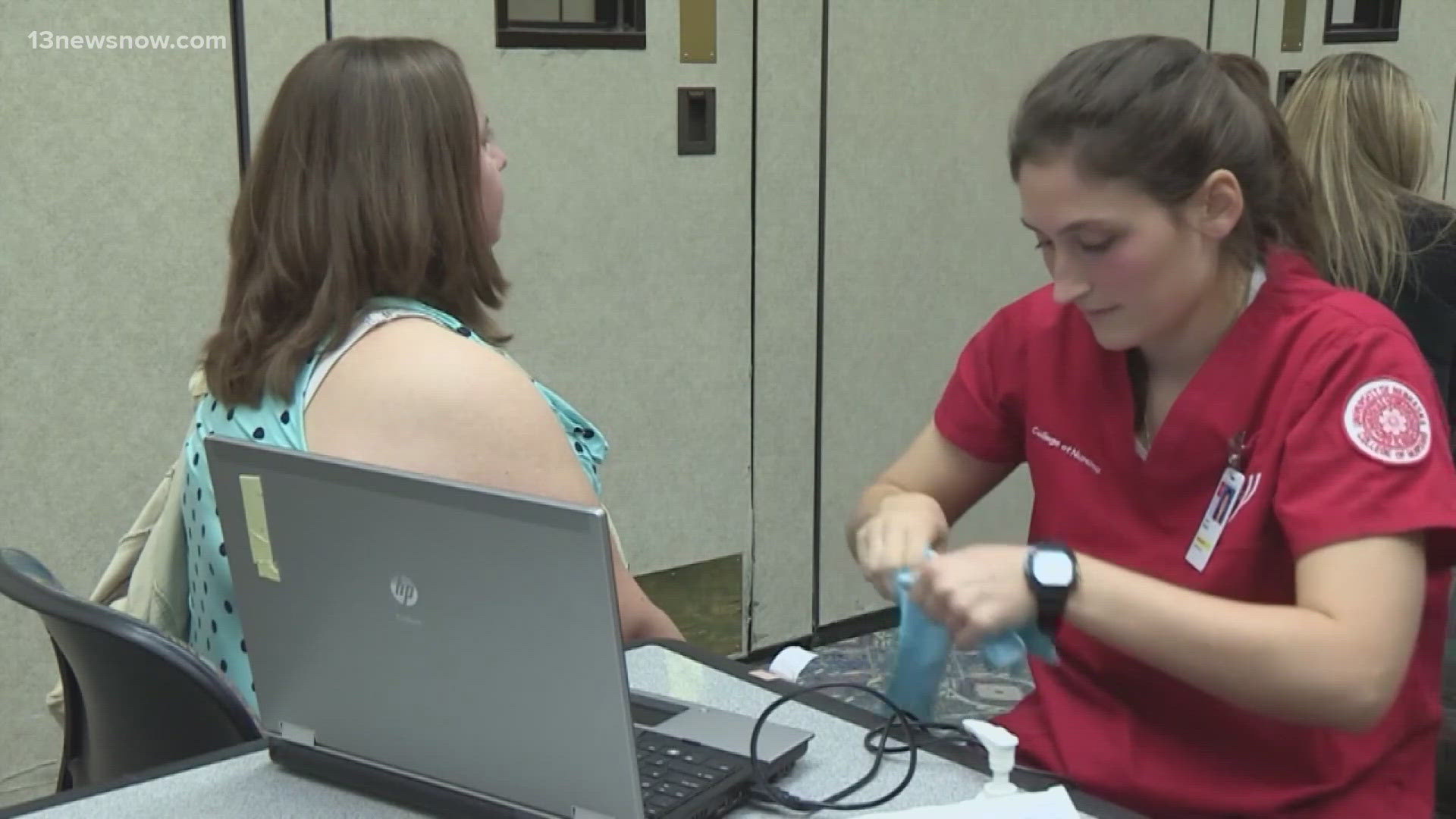NORFOLK, Va. — After two children died in the same week from COVID-19, parents are finding themselves even more worried for their kids' health and safety.
Children's Hospital of The King's Daughter said Friday that they have been getting flooded with calls from worried parents.
Because many of these parents had the same concerns and questions, CHKD released a video providing information on what parents should know and look for in their children.
The video features Chief Medical Officer and Pediatric ICU Doctor Christopher Foley.
Foley started off by reminding parents that if your child is healthy, but you want to get them COVID tested, take them to a public testing site. Do not take them to CHKD or another medical facility.
If you're looking for a testing site, CHKD has info on their website here.
Foley also emphasized the fact that COVID is still a "mild illness in the vast majority of children."
However, he continued on by saying, "but of course, these heartbreaking losses remind us that COVID is an unpredictable illness and can be life-threatening in rare circumstances."
Foley emphasized that the most important thing a parent can do is keep an eye on their children's symptoms, saying that it's even more important than getting a COVID test.
"There are lots of other viruses circulating right now," Foley said. "While testing is important for containing the spread of the coronavirus, families should assume that children with symptoms of COVID are contagious."
According to Foley, parents should follow quarantine protocol until testing confirms a diagnosis.
In regard to what to look for in your kids, Foley says fever, cough, breathing difficulties, and altered mental state are key.
Parents should be particularly concerned if kids show the following symptoms:
- unable to catch their breath
- breathing quickly
- working hard to breathe
- turning blue around the mouth
- unable to speak
- unable to lie flat
- infants and toddlers can't eat or drink
"Any time you see these symptoms, please seek care even if your child was seen by a doctor earlier," Foley said. "Children's conditions can change very quickly. Parents know their children best and should always trust their gut."



